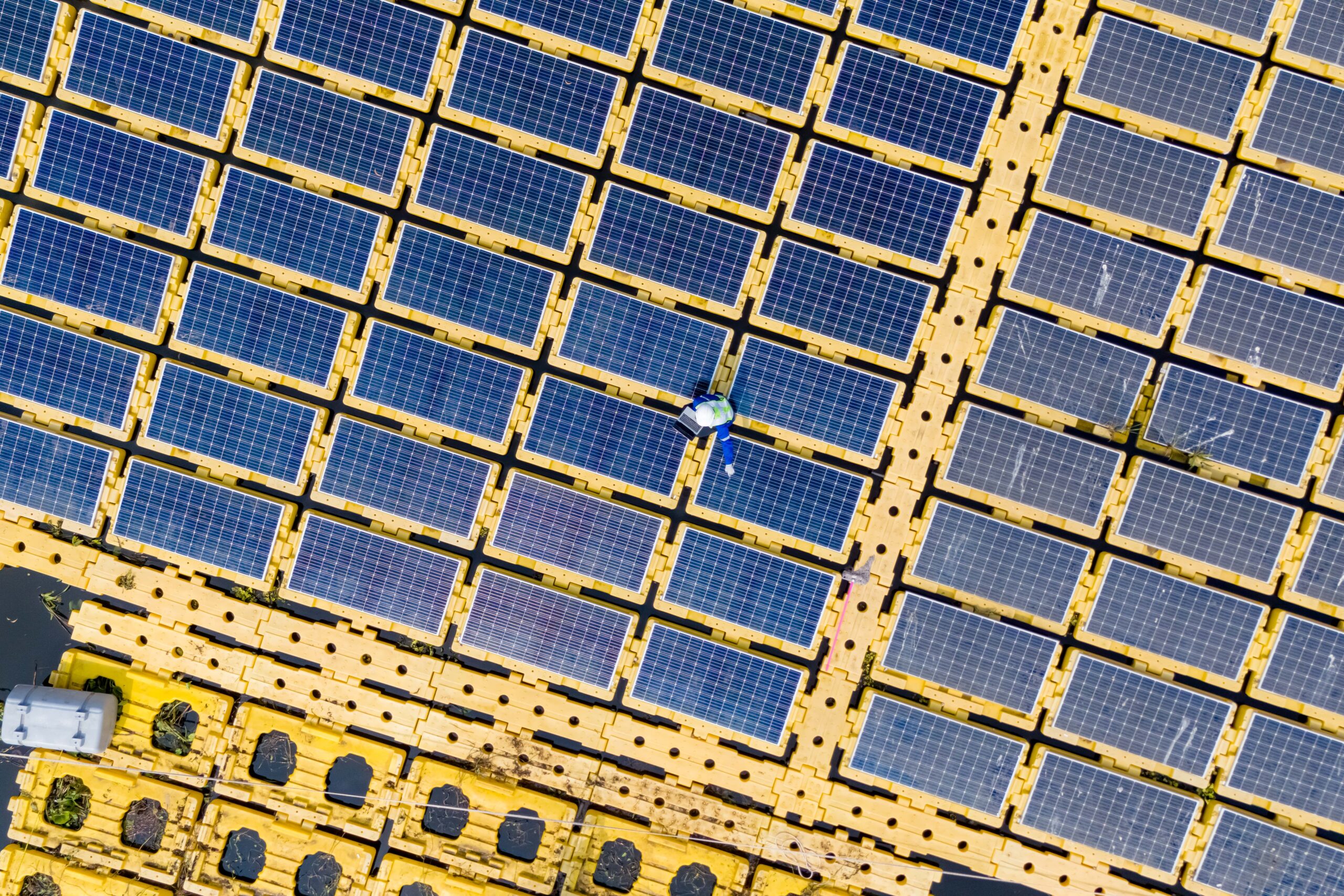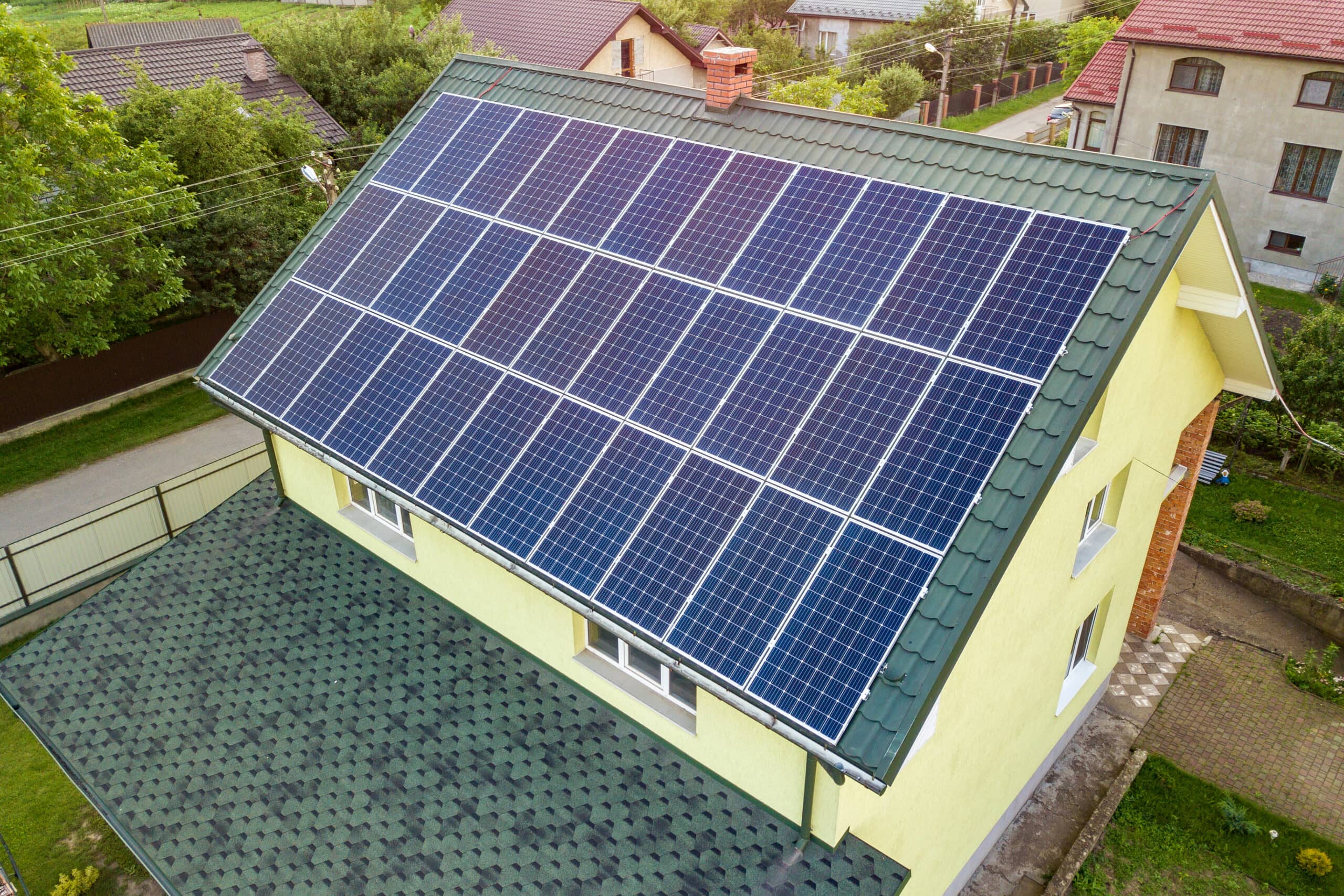Solar panels are a key component of renewable energy systems, harnessing sunlight to generate electricity. Depending on various factors, they have a lifespan of around 25 to 30 years or more. Understanding what happens to solar panels after their useful lives are over is crucial for sustainable waste management and the transition to a circular economy.
By exploring the end-of-life process for solar panels, we can ensure proper disposal, recycling, or repurposing of these materials. This helps minimize environmental impact, reduce waste, and recover valuable resources for future use. It’s important to consider the entire life cycle of solar panels to maximize their sustainability benefits.
Training and cost
1. Training Programs for Solar Panel Recycling
Training programs are essential for the efficient handling and recycling of old solar panels:
- Specialized Training: covers dismantling, hazardous material handling, and waste management.
- Safety Protocols: Emphasizes safety measures for workers and the environment.
- Waste Minimization: Strategies to minimize waste generation and maximize material recovery.
2. Environmental Benefits
Trained personnel reduce environmental harm:
- Resource Recovery: Recovers valuable materials and conserving resources.
- Reduced Landfill Waste: Decreases waste sent to landfills, reducing pollution.
- Energy Savings: Recycling saves energy and lowers the carbon footprint.
3. Cost Analysis: Recycling vs. Disposal
Understanding financial implications is crucial:
- Cost Components: Includes transportation, processing, and labour.
- Economic Incentives: Government grants and policies can offset recycling costs.
- Long-term Savings: Recycling contributes to sustainability and long-term cost savings.
4. Economic Opportunities
Investing in recycling creates economic benefits:
- Job Creation: Green technology jobs in the recycling sector.
- Market Expansion: Growth in refurbished panels and recycled materials market.
- Innovative Solutions: Drives investment and fosters circular economy practices.
Laws and regulations
Specific regulations govern solar panel disposal, and these regulations vary by country or region. In Nova Scotia, for example, the Nova Scotia Power Inc. (NSPI) oversees the proper disposal and recycling of solar panels.
When solar panels installed on homes or businesses end their operational life, NSPI coordinates their removal and recycling. This involves a detailed process of collecting and transporting panels to certified recycling facilities. Glass, metals, and silicon are carefully separated and reclaimed at these facilities, minimizing waste and promoting resource recovery.
NSPI’s approach aligns with Nova Scotia’s broader environmental goals and regulations. They work closely with partners and recycling organizations to adhere to best practices and ensure that solar panels are disposed of in a way that reduces environmental impact. By taking these steps, NSPI supports the circular economy, where products are reused and recycled, contributing to the sustainability of the energy sector in Nova Scotia.
Environmental Impact
Improper disposal of solar panels can have negative environmental consequences. When not handled correctly, solar panels can release hazardous substances such as lead, cadmium, and other toxic materials into the environment. These substances can contaminate soil and water sources and harm ecosystems and wildlife.
On the other hand, proper recycling of solar panels brings several benefits. By recycling solar panels, we can reduce waste and prevent the accumulation of electronic waste in landfills. Recycling also helps conserve valuable resources like metals, glass, and silicon, which can be reused to produce new panels. This reduces the need for extracting and processing raw materials, leading to a lower environmental footprint.
Additionally, recycling solar panels helps reduce greenhouse gas emissions. Solar panel production requires energy, and by recycling them, we can save energy and reduce carbon emissions associated with manufacturing new panels.
Properly recycling solar panels is crucial for minimizing environmental harm, conserving resources, and mitigating climate change. We must be mindful of how we dispose of our electronic waste, including solar panels, to ensure a sustainable future.
Technological Innovations
In recent years, there have been advancements in recycling technologies specifically designed for solar panels. These technologies aim to improve the efficiency and effectiveness of the recycling process. For example, specialized equipment can now separate and recover valuable materials like silicon, glass, and metals from old panels, making it easier to reuse them in producing new panels.
As for prospects, researchers and scientists are continuously exploring sustainable disposal methods for solar panels. One promising area of development is using advanced recycling techniques, such as chemical processes and innovative separation methods, to enhance recycling efficiency further and recover even more valuable materials.
Another exciting prospect is the development of circular economy models for solar panels. This approach focuses on designing recyclable panels, ensuring that the materials used can be easily separated and reused when the panels end their life cycle. By adopting circular economy principles, we can create a more sustainable and closed-loop system for solar panel disposal.
These technological innovations and prospects hold great promise in improving the recycling process for solar panels and establishing more sustainable methods for disposing of them. It’s exciting to see how the field continues to evolve and contribute to a greener future.
Global Initiatives
On an international level, several efforts and agreements are in place to manage the proper disposal and recycling of solar panels. One notable initiative is the Basel Convention, an international treaty that aims to minimize the movement of hazardous waste across borders, including electronic waste like solar panels. The Convention promotes environmentally sound waste management and encourages countries to establish recycling programs.
There are a few shining examples of countries with robust recycling programs. Germany, for instance, has been a leader in solar panel recycling. They have established a comprehensive system that ensures solar panel collection, recycling, and proper disposal. Other countries like Japan, Belgium, and the Netherlands also have well-developed recycling programs for solar panels, focusing on efficient and environmentally friendly processes.
These countries have recognized the importance of managing end-of-life solar panels responsibly and have implemented measures to ensure proper recycling and disposal. Their initiatives serve as models for other nations to create sustainable solar panel waste practices.
It’s inspiring to see these global initiatives and the commitment of countries to address the environmental impact of solar panel disposal.
Challenges and Solutions
Recycling solar panels presents a number of challenges, mainly due to their complexity. Solar panels consist of components such as silicon, glass, metals, and even small amounts of hazardous materials. Separating and recovering these materials efficiently can be a challenge.
However, innovative solutions and strategies are being developed to improve recycling efficiency. One approach is the development of advanced sorting technologies that can automatically identify and separate different materials in solar panels. These technologies use techniques like optical sorting, robotic systems, and artificial intelligence to streamline the recycling process and maximize material recovery.
Another solution is to explore new recycling techniques, such as chemical processes, to extract valuable materials from solar panels more effectively. Researchers are constantly working on finding ways to recover materials like silicon and metals in a more efficient and environmentally friendly manner.
Additionally, adopting standardized designs and materials in solar panel manufacturing can contribute to more accessible and efficient recycling. Designing panels with recyclability in mind from the beginning can help reduce complexity and facilitate the recycling process.
By addressing the challenges and implementing these innovative solutions and strategies, we can improve the recycling efficiency of solar panels and reduce their environmental impact. It’s exciting to see the progress being made in this field!
The Future Outlook
Solar panel disposal is a global concern, and international efforts like the Basel Convention are in place to manage the proper recycling and disposal of solar panels.
Countries like Germany, Japan, Belgium, and the Netherlands have robust recycling programs for solar panels, serving as examples for others to follow.
Challenges in recycling solar panels include the complexity of materials, but innovative solutions like advanced sorting technologies and new techniques are being developed.
Sustainable practices, such as designing panels with recyclability in mind, can contribute to more accessible and more efficient recycling.
Looking ahead, individuals, governments, and industries must take action for sustainable practices. We can minimize waste and maximize resource recovery by responsibly recycling solar panels and supporting ongoing research in recycling technologies.
Remember, every small step counts! Consider educating others about the importance of recycling solar panels and supporting initiatives that promote sustainable practices. Together, we can create a cleaner and greener future.






